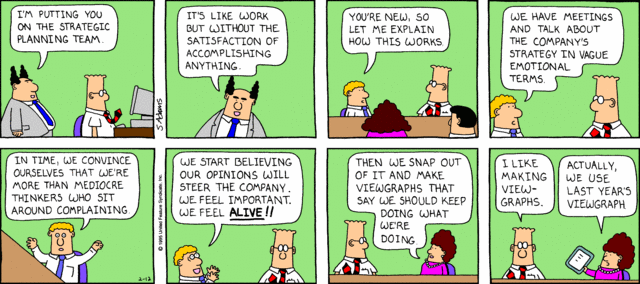Future Minds Today
At lunch Friday with one of my mentors we briefly discussed the old adage of those who can't do, teach. Having grown up through the education system where learning the answers for the test on Friday and completely letting the material go by Monday (standardized testing) I certainly treated some subjects that way. However, as a new teacher in both undergraduate and graduate levels who came out of 30 years of entrepreneurial experience in both for profit and non-profit I strive to Teach others to do. Not that I'm alone in that philosophy as a teacher or have achieved a level of mastery in teaching. I've met hundreds of teachers who feel the same way and are vastly superior (additional mentors) at all levels of education. By all means life long learning, required in our global economy and information age, is a habit that requires less television and more reading in all of us.
In a previous discussion on Philosophy, Psychology and Math, we discussed three key concepts that we must individually master in order to achieve a level of personal growth and success. Though certainly there are many theory divisions within psychology, in particular the work of Howard Gardner and Lian McGilchrist, along with the writings of Daniel Pink (not a psychologist) make sense to me. Gardner's Five Minds for the Future is reflected in the graphic above.
If we're looking for the benefits they should be obvious, let alone the requirements of life long learning expanding competencies and understanding in a global society and economy that continually hangs on the edge of one crisis variation or another. That is a personal choice for each of us to make and do something about.
After all, Survivor could be coming up on some television channel and might be more important than personal and community development. Freedom to choose is not only constitutional but biblical after all. It's your decision.
In a previous discussion on Philosophy, Psychology and Math, we discussed three key concepts that we must individually master in order to achieve a level of personal growth and success. Though certainly there are many theory divisions within psychology, in particular the work of Howard Gardner and Lian McGilchrist, along with the writings of Daniel Pink (not a psychologist) make sense to me. Gardner's Five Minds for the Future is reflected in the graphic above.
- Disciplined: Continually working to improve the ways in which we think in order to achieve expertise in some field. Preferably one that we're passionate about. Life is too short to devote ourselves to a living we really care nothing about beyond financial gain. However, that has to include multiple disciplines, and not simply one way or model of seeing the world.
- Synthesizing: The ability to combine multiple disciplines, subjects and theories in ways that not only make sense to us, but can be communicated to others in ways that they understand, whether we teach or not. This is particularly true of those in leadership positions.
- Creative: Directly quoted from Gardner: People who are judged creative take chances, take risks, are not afraid to fall down, and picking themselves up, say "what can I learn from this," and they go on. That is the entrepreneurial spirit which will lead economic recovery locally or globally, whether we're talking manufacturing, service or the arts. We all know what being too creative has wrought in the financial sector.
- Respectful: If we haven't come to an understanding that across the one planet we all live in there are multiple paradigms of other humans who look, think and act differently than the culture we've grown up with, and that there is more value to that than discord, it's time to wake up. Well, those who believe that theirs is the superior culture wouldn't be reading this anyway. That doesn' mean we have to agree, only accept that particularly in this country where freedom is so cherished, they have the right to their worldview as much as we have a right to ours. If your paradigm is the religion of self that involves harming disadvantaged people or win-lose scenarios, we have a major problem. Collaboration, absolutely required beyond economics and so missing in our federal government at the moment, must treat others with respect or no positive outcomes can be achieved.
- Ethical: Clearly lacking among many political and business leaders, particularly in the financial sectors over the past decade or two, we must think of our responsibilities as community citizens before an emphasis on our rights as individuals. Period.
If we're looking for the benefits they should be obvious, let alone the requirements of life long learning expanding competencies and understanding in a global society and economy that continually hangs on the edge of one crisis variation or another. That is a personal choice for each of us to make and do something about.
After all, Survivor could be coming up on some television channel and might be more important than personal and community development. Freedom to choose is not only constitutional but biblical after all. It's your decision.





Comments
Post a Comment
Thank you for sharing your worldview.